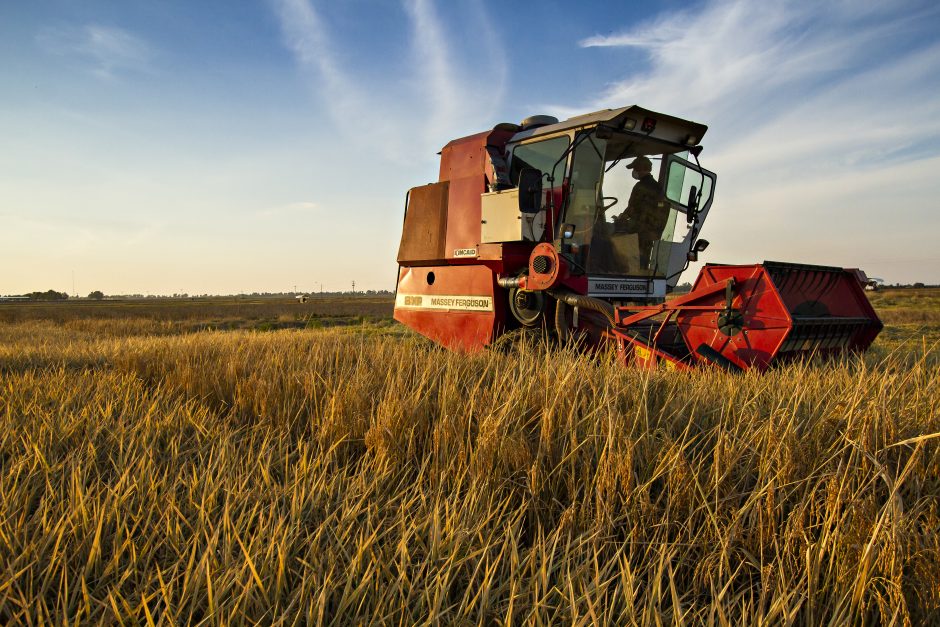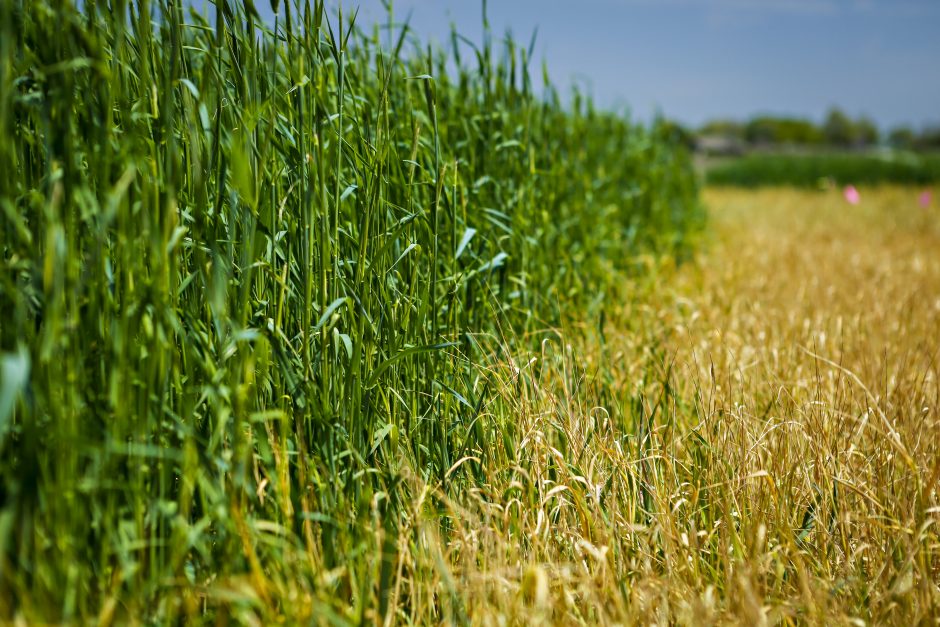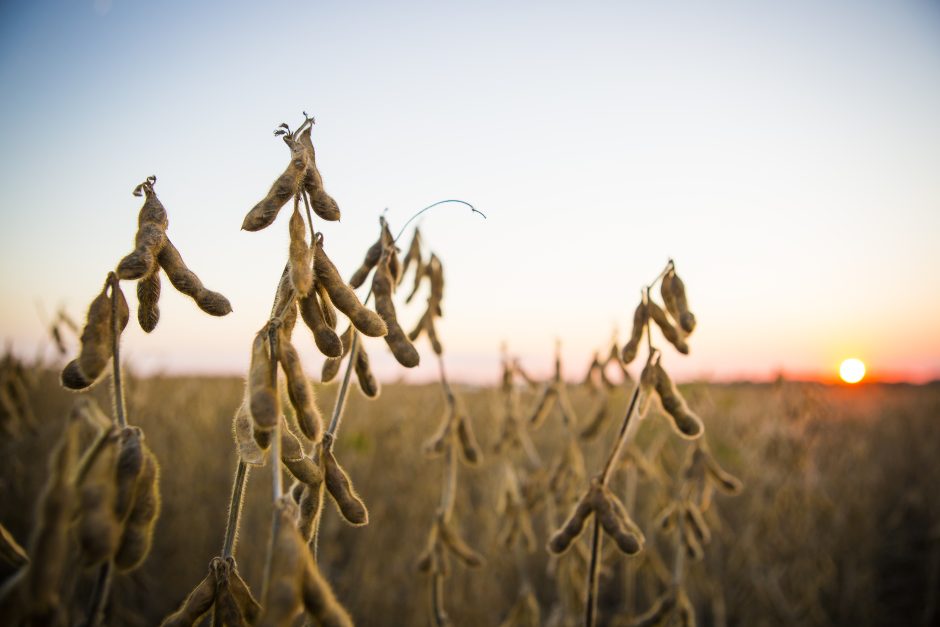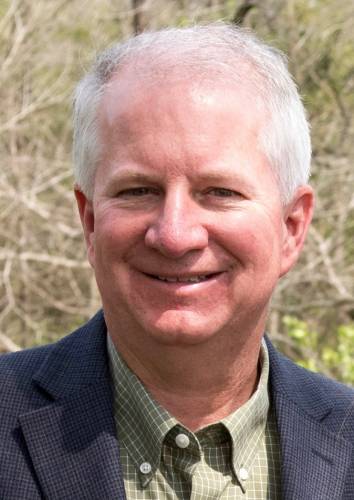
Rice is harvested at the Fisher Delta Research Center. Three locations make up Fisher Delta Research Center's 1,078 acres in a 12-county area that forms the Missouri Bootheel.
In recent years, floods, droughts and other severe weather have significantly impacted farmers throughout the country. In an effort to help farmers adapt to the changing climate, the United States Department of Agriculture (USDA) has awarded the University of Missouri $25 million - the largest federal research, education and extension grant ever awarded to MU - from the Partnerships for Climate-Smart Commodities Program.
"As Missouri's flagship, AAU, land-grant university, MU is committed to addressing local and global challenges to improve society," University of Missouri President Mun Choi said. "This grant demonstrates the confidence the nation has in MU scientists who continually seek answers on some of society's toughest issues. We expect that the discoveries made during this transformational project will be expanded to address similar challenges throughout the nation and world."
The five-year project is aimed at helping Missouri farmers adopt climate-smart practices that will ultimately help farmers improve the resiliency of their crops and livestock in the midst of growing threats from climate change.
Rob Myers, an adjunct professor in the MU College of Agriculture, Food and Natural Resources (CAFNR) and director of the MU Center for Regenerative Agriculture, will lead the project.
"Growing up on a farm, I've seen firsthand challenges that can arise from extreme weather, whether it's flooding from excessive rain or drought from not enough rain," Myers said. "Climate change ultimately impacts our food production and food prices, so our goal is to help farmers with different practices that will make their farms more resilient."
The collaborative grant includes partnerships among the MU Center for Regenerative Agriculture, MU Extension, the MU Center for Agroforestry, Lincoln University, the Missouri Corn Growers Association, the Missouri Soybean Association, the Missouri Cattlemen's Association, state agencies, agribusiness non-profit groups in Missouri and 14 faculty in CAFNR.
"This project is aimed at helping farmers adopt climate-smart practices such as cover crops, agroforestry, regenerative grazing and improved nutrient management," said Christopher Daubert, vice chancellor and dean of CAFNR. "We're thrilled that we'll be able to support Missouri producers through this grant. In fact, over the five-year project period, up to 3,000 Missouri farmers are expected to be involved in the project."

Cover crops, shown above, are planted to cover the soil and protect it from harsh weather as well as other unexpected issues.
Participating farmers will receive financial incentives for climate-smart practice adoption, technical support, and training and improved marketing opportunities. The climate-smart practices, which will be adopted on up to 500,000 acres of Missouri farmland, are aimed to improve resiliency of farm operations in the face of extreme weather, including droughts or excessive rainfall.
"Agriculture is the number one industry in Missouri, and we are proud that the partnership between MU and the USDA will help support farmers all across the state," Missouri Governor Mike Parson said. "We have some of the greatest minds here in Missouri working to solve issues in agriculture and beyond. We look forward to this project's success in helping our farmers implement more resilient practices that allow them to better feed and fuel the world now and into the future."
The climate-smart practices, which will be adopted on up to 500,000 acres of Missouri farmland, are aimed to improve resiliency of farm operations in the face of extreme weather, including droughts or excessive rainfall.
"MU has some of the best agriculture research minds in the world, and this collaborative partnership demonstrates the far-reaching nature of our impact," University of Missouri Board of Curators Chair Darryl Chatman said. "Food production is a key issue as we look to the future of our collective global health. Our outreach efforts with this project will help all farmers establish the best possible practices for their crops and livestock in the midst of floods, droughts and other severe weather."
Myers said practices related to cover crops will protect and improve soil while enhanced strategies for grazing and pasture management will help livestock farmers purchase less hay in times of drought and boost the health of their cattle.
"There are also opportunities on the marketing side, as consumers are often willing to pay more for foods that are produced through practices that benefit the environment," Myers said. "We strive to lead the way toward a robust food and agriculture system for the future."
One of the main goals of the grant is to get more carbon out of the atmosphere and into the soil, with an expected reduction of 1 million metric tons in carbon dioxide equivalents - comparable to offsetting the emissions of more than 200,000 cars in Missouri.
"Farmers and ranchers are the ultimate stewards of the land," Missouri Director of Agriculture Chris Chinn said. "With both drought and flooding this summer alone, we see how producers are resilient to face weather challenges. We welcome opportunities that will have an impact on our operations and allow producers to make the land even more productive for the next generation."
In addition to outreach efforts geared toward underserved farmers, the grant will also support development of new markets for climate-smart practices, including the bioenergy sector and with Missouri grass-fed beef.
"Lincoln University is honored to partner with the University of Missouri on this project that will benefit citizens throughout the state," said John B. Moseley, president of Lincoln University. "Our collaboration on projects such as this one demonstrates the value of the state of Missouri being home to both Mizzou and Lincoln as land grant universities."
MU Extension also will play a key role in helping farmers effectively adopt these practices in rural Missouri.
"By offering regenerative grazing workshops, cover crop training programs, nutrient management programs and agroforestry-related outreach, we will help farmers become aware of both the financial benefits as well as training and education opportunities," said Marshall Stewart, vice chancellor of MU Extension and Engagement. "Another goal is communicating with farmers about new opportunities for marketing climate-smart commodities."

Soybeans grown at Bradford Research Center.
Photo by Kyle Spradley | © 2014 - Curators of the University of Missouri







